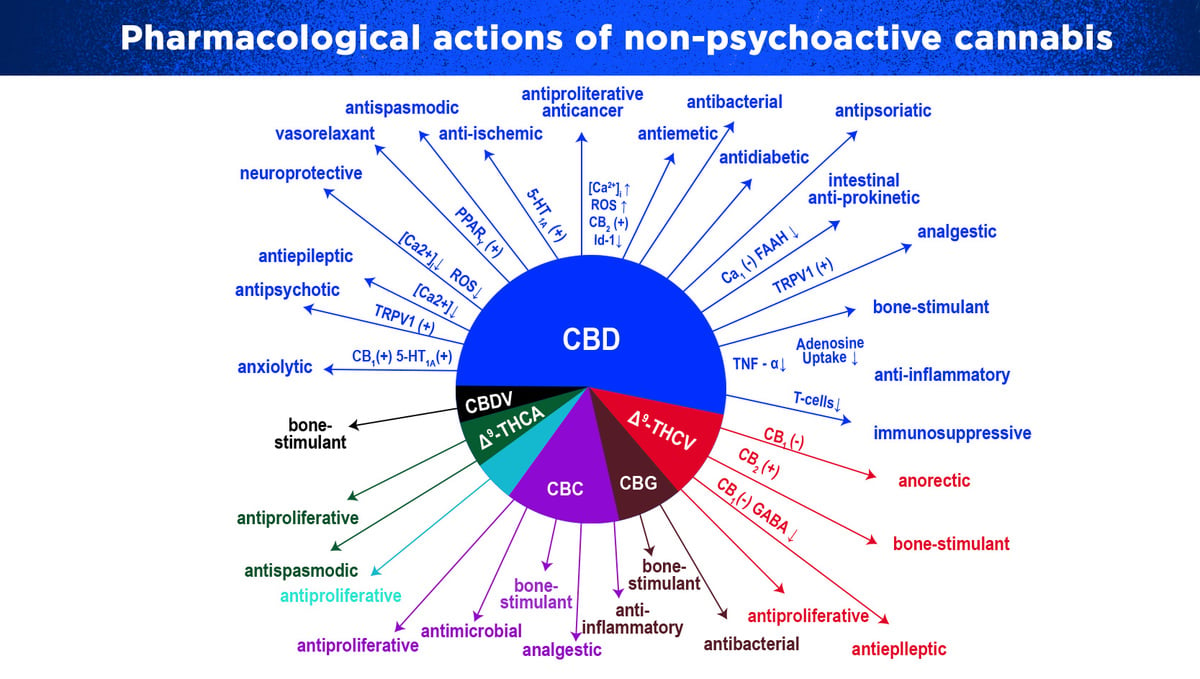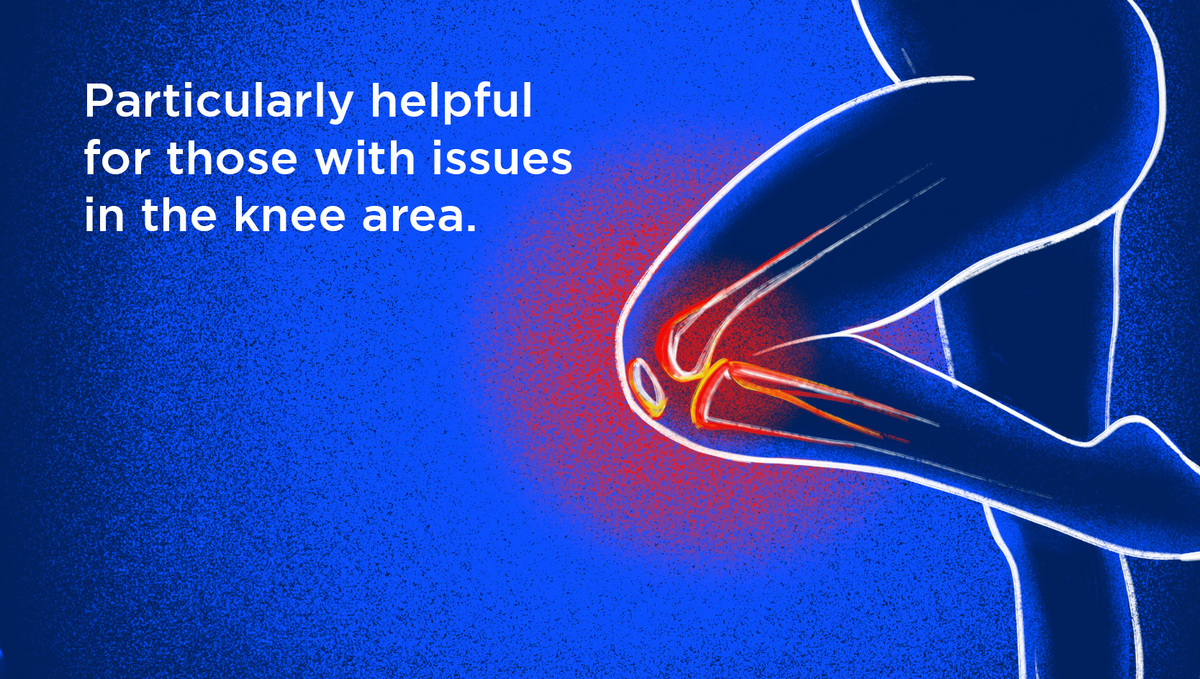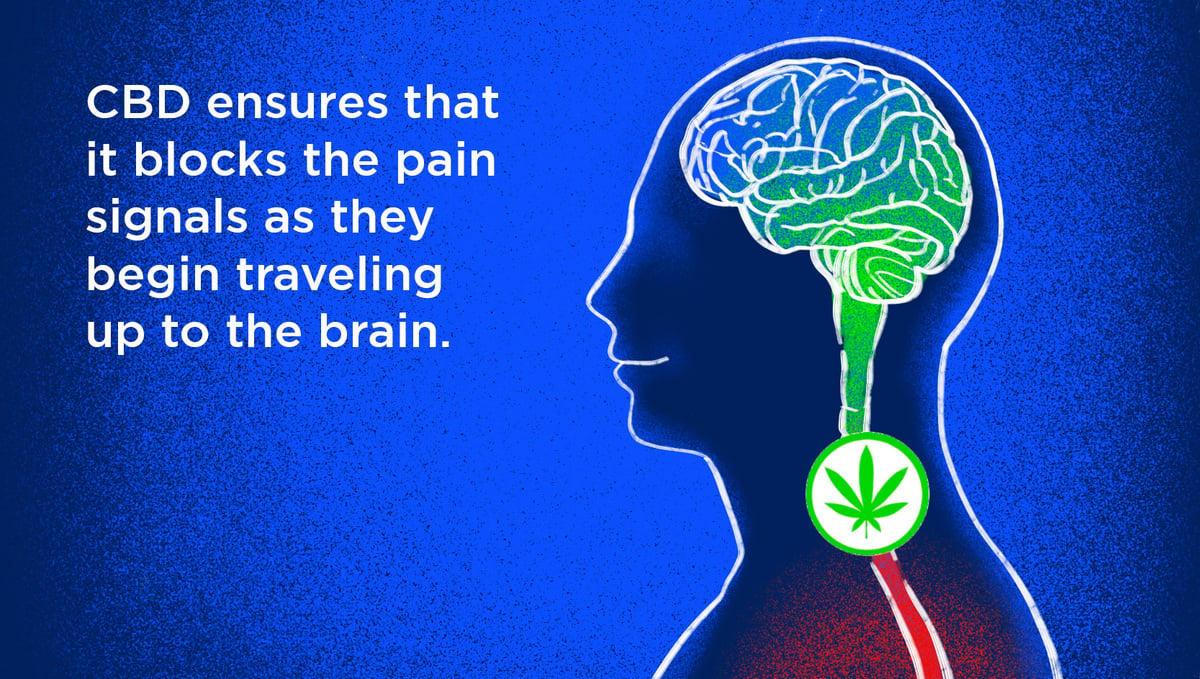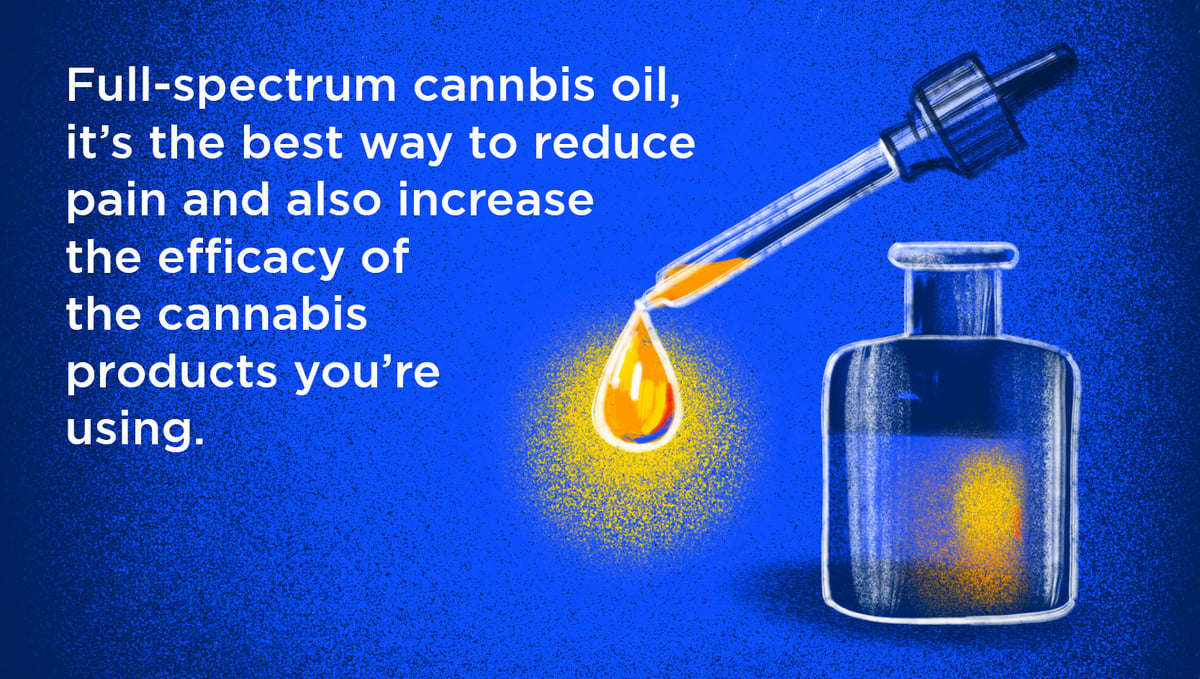Can Medical Cannabis Relieve Chronic Pain?

Cannabis is an herb with many powerful healing qualities, yet lack of research makes it difficult for physicians to prescribe what’s good for their patients. Therefore, patients rely on their own instincts and try cannabis to see if it actually works. Indeed, cannabis has made millions of people happy with its capability to relieve pain, although you won’t find any concrete research on this topic. So, can medical cannabis relieve chronic pain? Or, is it just a myth? Let’s find out…
Many medical cannabis users try marijuana after hearing wonderful things about it. For some, it really works but others are left disappointed because a) they couldn’t handle THC and b) they weren’t using the right strain or product. Also, the type of pain you’re using cannabis for also matters. For example, pain arising due to an injury is different than pain due to, say, arthritis.
Knowing what cannabinoid to use will definitely help you in your quest to reduce pain. Here are a few common ailments that cannabis can actually help you with:

CANNABIS AND ARTHRITIS
THC – a cannabinoid occurring in the cannabis plant – has been the center of attention for many researchers. Studies1 show that it can reduce inflammation and has more pain-relieving properties than products bought over the counter. Interestingly, scientists discovered2 a high number of CB2 receptors in the joints of those suffering from arthritis. This could be the result of the endocannabinoid system actively defending the body. By this discovery, it was easy to conclude that cannabis had the ability to reduce inflammation by activating the pathways of CB2 receptors.
Recently our FastBuds team have been developing a pure medicinal strain that has a potent percentage of CBD (up to 20%) and a THC content as low as 0,3% especially for medical patients who are battling issues such as anxiety, insomnia, chronic pain, inflammation would appreciate an entirely medicinal strain, like CBD 20:1. It has the potential to alleviate many pains and disorders and with such low THC levels, making it perfectly suitable for those who are not regular cannabis users.
THC AND CBD BINDING TOGETHER
Needless to say, scientists have found that patients can manage pain if they target the cannabinoid receptors3 through cannabis. It’s particularly helpful for those with issues in the knee area. And, this happens because both the cannabinoids including THC and CBD work together to reduce pain.

How? Well, firstly, THC targets immune cells that have gone out of control. These cells begin attacking the body and spread inflammation further. When THC kills these cells (known as apoptosis) CBD joins the party with its anti-inflammatory agents and fights against arthritis. Additionally, CBD possesses antiproliferative properties, which means that it prevents those immune cells from spreading further and creating havoc.
Both cannabinoids CBD and THC reduce cytokines production. Cytokines are proteins that increase inflammation and are produced by immune cells. They are manufactured in large quantities in those suffering from rheumatoid arthritis. In addition, both THC and CBD work as anti-oxidants that further reduce pain and inflammation. Generally, inflammation and pain increases due to the oxidative stress and CBD and THC prevent this from happening, thanks to their antioxidant properties.
Medical patients who aim to treat aches and pains, muscle spasms, cramps, relieve feelings of nausea and sickness with cannabis should look for the strains with a 1:1 CBD:THC ratio. Our team has cured and created a strain especially for this occasion. CBD Auto 1:1 would be definitely the right option, moreover at the same time, it helps to reduce anxiety, improve clarity and motivation.
While THC binds to the CB1 receptors present in the body, CBD has the ability to bind to receptors that aren't even a part of the ECS (endocannabinoid system). The receptors bind to play a key role in fighting against pain and inflammation.
CANNABIS AND INFLAMMATORY PAIN
One can feel different types of pain. While it’s sometimes due to physical damage or injury (nociceptive pain), it could also happen due to other reasons. Sometimes, you can feel pain even if you haven’t hurt yourself. When it’s nociceptive pain tissues are damaged, and these damaged tissues take the aid of several immune cells and inflammatory cells to reduce the damage.
In turn, these cells produce chemicals and proteins that activate several receptors present on the nerves. These nerves send a message to the brain that causes you to feel the pain.
So, since the pain is felt after the nerves send a message, doesn’t it make sense to weaken these signals so that the pain itself is blocked? Or, they can be blocked as their travel towards the spinal cord and then make their way to the brain to announce pain. Amazingly, cannabis takes both these approaches to dampen pain.

Since CBD and THC both possess anti-inflammatory effects, they have the power to block pain at the location an injury has occurred. Both these cannabinoids are powerful and do a better job when combined together. If THC works alone, it binds itself to the CB2 receptors present on immune cells and activates them. However, some patients may not like the psychoactive effects it produces although it reduces pain.
When CBD combines with THC, it not only reduces inflammation but it also blocks several inflammatory mediators that send messages allowing you to sense pain. From being pro-inflammatory, the repair cells turn anti-inflammatory and they begin to repair the damage.
ROLE OF CBD
CBD’s role isn’t limited only to receptors in the endocannabinoid system. In fact, it targets receptors located outside as well. Interestingly, CBD targets the GABA neurotransmitters that are responsible to send messages through the nervous system and the brain. Basically, GABA ensures that there is a steady flow of communication between brain cells.
By targeting GABA, CBD ensures that it blocks the pain signals as they begin traveling up to the brain. In other words, it “hacks” the neurotransmitter that sends messages to the brain so that the brain doesn’t receive these messages highlighting pain. Thus, when the brain doesn’t even get these messages, you do not feel pain.
Additionally, CBD also activates serotonin receptors that make you feel good. When you feel happy and positive, it’s less likely that you’ll feel pain. A positive mood reduces pain remarkably and you’ll soon stop thinking about the pain. When your mind isn’t even focusing on the pain, it becomes easier to heal and this is how cannabis reduces pain in its mysterious ways. This is why you should choose strains that contain both CBD and THC.
Yes, it can make you uncomfortable if you aren’t adjusted to the effects of THC, but CBD reduces the negative effects of THC whenever you combine them together. In fact, it changes the shape of the receptors THC binds itself to, and this helps to negate the effects to a great extent while you enjoy the positive effects.
This way, you can experience the pain-relieving abilities of THC while experiencing the effects of CBD as well. Note that if you continue using THC-rich strains over a prolonged period of time, the effects may become dull after a while. This is because your body gets adjusted to THC and will no longer feel the effects.
FULL SPECTRUM OILS
Also referred to as “tolerance” by cannabis users, it can make you immune to cannabis and its cannabinoids like THC. To prevent this problem, use oils that contain all the cannabinoids and terpenes of the plant including CBD. Known as full-spectrum oil, it’s the best way to reduce pain and also increase the efficacy of the cannabis products you’re using.

You can also change strains if the effects are reducing overtime. Some cannabis users stop consuming or smoking cannabis in an effort to flush THC out of their system so that they can start afresh. Known as a tolerance break, even you can try this if you want to make sure that your body responds to cannabis the way you want.
Generally, most of the THC exits the system in less than a week while the remaining THC stored in the fat cells will take a while. Thus, you can stop consuming or smoking marijuana for about a month if you wish to reset your system and start fresh.
EXTERNAL RESOURCES
1. Marijuana shows potential in treating autoimmune disease - https://www.sciencedaily.com/releases/2014/06/140602150914.htm
2. Expression of cannabinoid receptor 2 and its inhibitory effects on synovial fibroblasts in rheumatoid arthritis - https://academic.oup.com/rheumatology/article/53/5/802/1798167
3. Cannabinoid CB2 receptors regulate central sensitization and pain responses associated with osteoarthritis of the knee joint - https://www.ncbi.nlm.nih.gov/pubmed/24282543
MEDICAL DISCLAIMER
This content is for educational purposes only. The information provided is derived from research gathered from external sources.










Comments